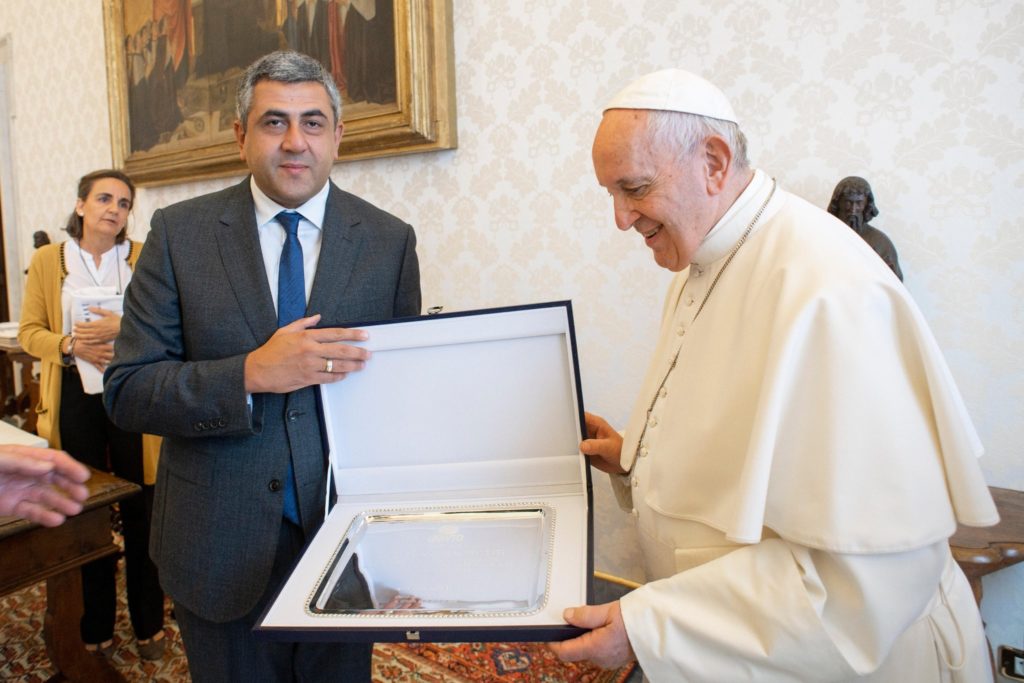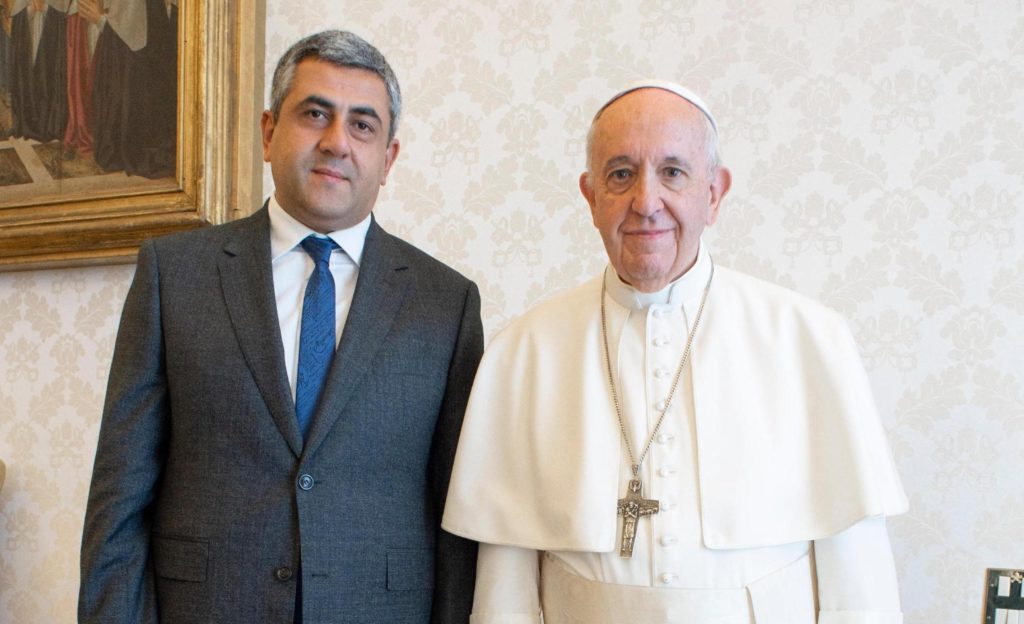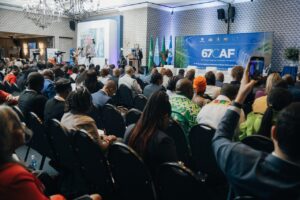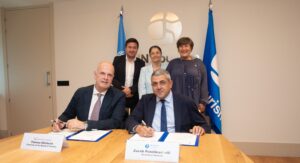The Secretary-General of the World Tourism Organization (UNWTO) Zurab Pololikashvili has met with Pope Francis at the Vatican. During the private audience, Mr Pololikashvili expressed his gratitude for the Holy See’s commitment to eradicating poverty and promoting peace and intercultural dialogue, both central themes of UNWTO’s mandate, and outlined his vision for the role tourism can play in job creation and sustainable development.
Forming part of an official visit to Italy, the private audience with Pope Francis was aimed at further strengthening ties between UNWTO and the Holy See. UNWTO has enjoyed a long and productive relationship with the Holy See, which has held observer status to the World Tourism Organization since the latter was established in 1975. More recently, in 2008, Pope Benedict XVI welcomed members of the UNWTO World Committee on Tourism Ethics. On that occasion, the Holy Father was presented with the UNWTO Global Code of Ethics for Tourism, which outlines the guiding principles to which UNWTO’s public and private members adhere.

Today’s official meeting between the heads of the Catholic Church and the United Nations agency responsible for the promotion of responsible, sustainable and inclusive tourism, built on these foundations. Mr Pololikashvili also outlined UNWTO’s support of the growing religious tourism sector, highlighting how this can be harnessed to safeguard and promote heritage reaching across faiths and serve as a catalyst for employment and economic growth.
“It was a great honour, both on a professional and personal level, to meet with Pope Francis and I thank him for his warm welcome to the Vatican and for granting me a private audience,” Mr. Zurab Pololikashvili said. “Tourism and religion have much in common. Both strive to make the world a better place through eradicating poverty and promoting peace. I particularly admire His Holiness´s commitment to empowering minorities and the disadvantaged, something that is at the very heart of UNWTO’s vision for sustainable and inclusive tourism.”








